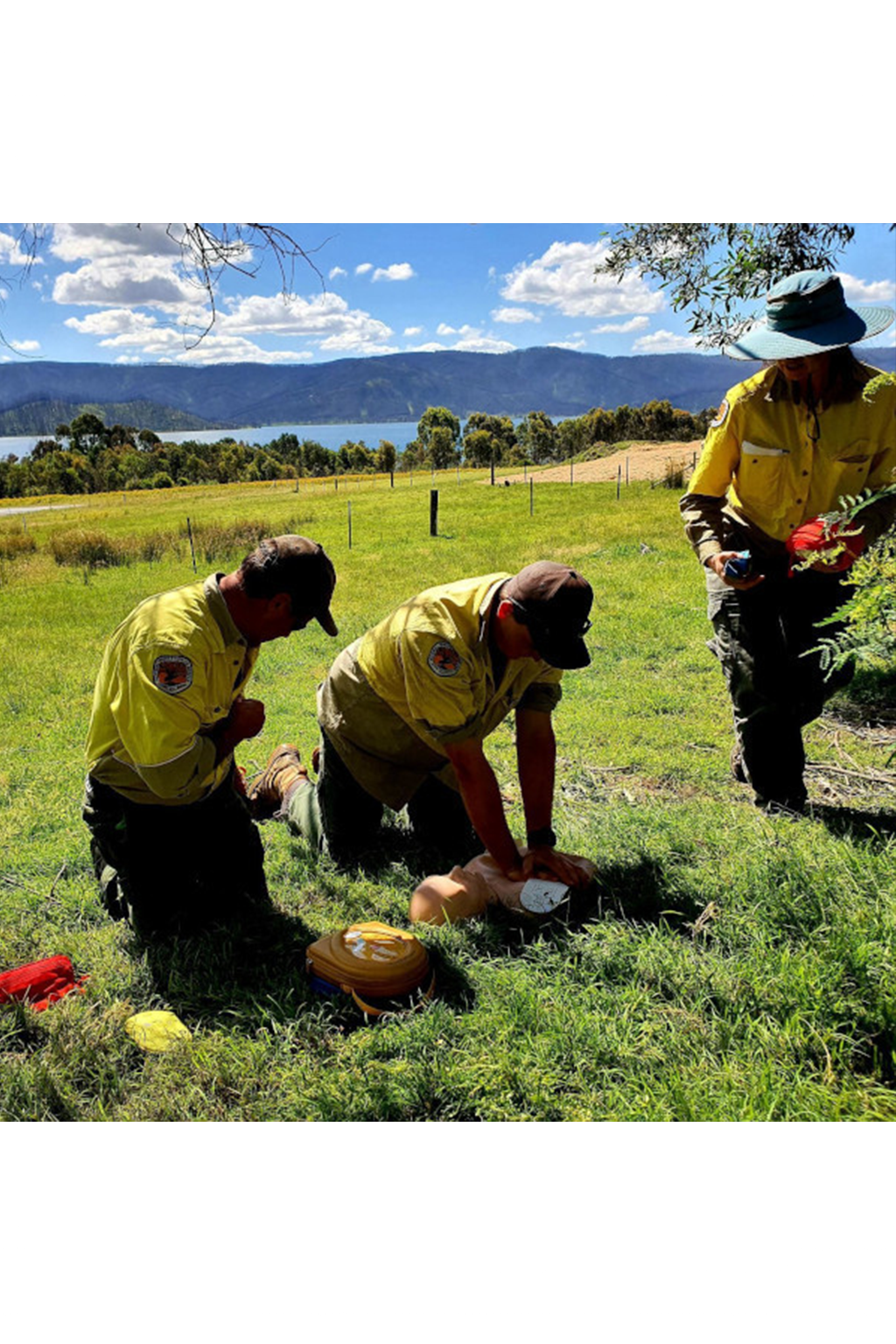Remote Casualty Care
Remote Casualty Care
Pricing on enquiry
In remote operations, you don't get second chances. This intensive, hands-on course bridges the critical gap between basic first aid and advanced trauma care, and transforms participants into confident responders capable of managing life-threatening trauma when professional medical assistance is hours away.
Course Structure & Approach
Pre-Course Learning: Online modules and assessments ensure all participants arrive with foundational medical knowledge, maximising face-to-face training effectiveness.
Two-Day Intensive Training: Hands-on skill development, scenario-based training, and high-fidelity simulations replicating real-world emergencies. This immersive experience pushes participants beyond their comfort zone through realistic scenarios delivered by TacMed's expert remote medical instructors.
Our instructors bring diverse backgrounds from military, rescue, and pre-hospital care, ensuring participants develop confidence across a wide range of life-saving skills and principles. This isn't just training, it's preparation for critical moments when lives depend on your response.
Comprehensive Curriculum
MARCHE Patient Assessment Methodology: The RCC curriculum follows best practice guidelines using the proven MARCHE approach:
- Massive Haemorrhage – Tourniquets, wound packing, and haemostatic agents
- Airway – Basic airway management and positioning techniques
- Respiration – Chest injury management and vented chest seals
- Circulation – Shock management and blood loss control
- Head Injury & Hypothermia – Patient monitoring and protection strategies
- Evacuation – Patient movement and handover using IMIST protocol
Comprehensive Skills Training:
- Situational awareness and patient assessment
- Limb and junctional haemorrhage control
- Cardiopulmonary resuscitation (CPR) and defibrillation
- Management of anaphylaxis, asthma, and burns
- Pelvic and limb fracture management
- Spinal and head injury protocols
- Improvised treatment options for resource-limited environments
- Multiple casualty triage using "Ten Second Triage (TST)"
- Casualty movement and extrication techniques
- Extended casualty care principles and remote trip planning
- Communication planning, including aviation signalling (PACE)
What Makes the RCC Program Different?
The Remote Casualty Care (RCC) program distinguishes itself from conventional remote or wilderness first aid courses by being specifically designed for real-world operations in high-risk, remote, austere, and resource-limited environments.
Unlike many generic remote first aid courses that focus on basic protocols with minimal operational context, RCC is mission-driven, trauma-centric, and grounded in internationally recognised best-practice guidelines, including those from Tactical Emergency Casualty Care (TECC).
This course is not about ticking a box for first aid compliance. The RCC is a learning journey designed to prepare participants to respond with skill, confidence, and clarity under pressure. Whether managing traumatic injuries in isolated terrain or supporting prolonged field care with limited resources, RCC trains responders to make critical decisions when professional help is far away and every second truly counts.
Topics Covered
Topics Covered
- First Responder Extended Care techniques
- Improvised trauma care techniques
- Advanced fracture management techniques and devices
- Anatomy and Physiology for remote area injury profiles including head, neck and spinal injuries
- Rapid Patient Assessment skills
- Arterial Tourniquets
- Junctional haemorrhage management techniques
- Trauma practical skills session
- Reality Based Training Scenarios
- Basic Life Support in the remote setting including:
- Asthma
- Anaphylaxis
- Airway and Choking Management
- CPR
- Fracture Management
- Envenomation Management
- Prevention and treatment of hypothermia in the remote environment
- Remote patient assessment concepts and techniques
- Casualty treatment techniques for the remote wilderness environment
- Medical planning for remote/wilderness environments
- Casualty evacuation from the remote environment
Units of Competency
Units of Competency
- HLTAID009 - Provide cardiopulmonary resuscitation
- HLTAID010 - Provide basic emergency life support
- HLTAID011 - Provide First Aid
- HLTAID013 - Provide First Aid in remote or isolated site
Certification
Certification
Nationally Recognised Statement of Attainment for:
- HLTAID009 - Provide cardiopulmonary resuscitation
- HLTAID010 - Provide basic emergency life support
- HLTAID011 - Provide First Aid
- HLTAID013 - Provide First Aid in remote or isolated site
TacMed CPD - Remote Casualty Care - Statement of Attendance
Duration
Duration
- 2 Days


